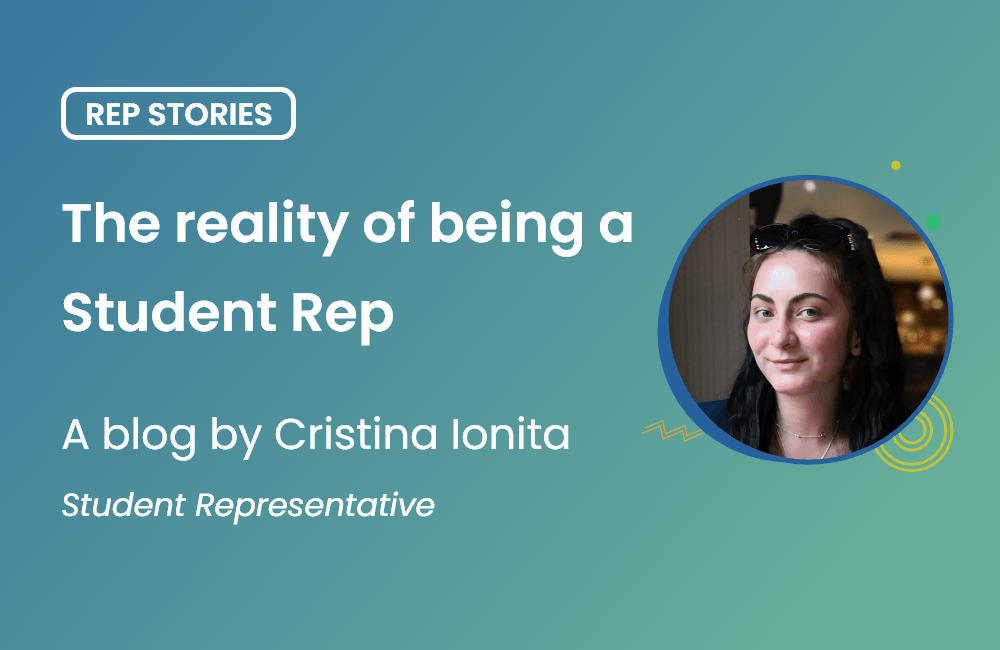
As a recently elected representative, I had high hopes, dreams, and a hunger for change. I was eager to contribute to the student body and felt ready to take on the challenges that came with my position. Students put their trust in me, so I had to bring them results.
To prepare for the task I decided to talk with previous reps, I wanted to find out what it takes to succeed… but despite their warnings, I was not prepared for what followed.
My experience
In my experience as a student in a small-size course, I often felt overlooked. The course was poorly managed, and dissatisfaction among students was high. Compared to other business schools, we had a shortage of teachers, an old curriculum, and significant confusion.
We tried discussing issues with our tutors and course leader, but nothing changed. As a student, I wanted to believe there was a way to make things better and refused to give up.
Therefore, when I became a faculty representative, I was certain I could make a positive impact. After speaking with several other students, I realised that many faced similar experiences. Lack of stability, resources, and limited experience seemed to be common issues. I gathered the information required, and I decided to take this with the management team. I presented my case, a case that affected a significant number of people, students and teachers alike.
After several meetings, nothing changed. Going back and forth only made matters worse. With the pandemic constantly overlooking our activity, we struggled to solve matters in a timely way. As a faculty representative, I was worried about not providing enough support to students.
The experiences of being a student and being a faculty rep had something in common: the perceived gap between students and the university management. In both experiences, I felt that we must build better bridges between students and the university management.
Before every meeting, I would put on my Superwoman cap and tell myself I am here until the end for the student body, their needs, and wants.
All the debates, surveys, suggestions, and spending hours strategizing between meetings reminded me of the war stories my dad used to tell me.
Every move counts. Never leave the base unless you have enough ammunition. Overwhelm the commander and the rest will follow.
This is what it felt like, only that in my case, I was fighting for students’ perspectives and needs.
Understanding each other
The university management has a duty towards the Board of Governors and the Senate. They have a responsibility to the national guidelines and programmes.
They spend time teaching, researching, attending meetings, and planning. Their world is very different from ours. I admit that teachers find themselves in a challenging position: help the students while respecting and supporting the university management. On top of worrying about student needs, they also need to consider timelines, budgets, and long-term priorities and visions.
The faculty representatives have a duty to the students. They are their voices and changemakers. Reps go to classes, work, meetings, workshops. Their world revolves around tiredness, excitement, libraries, meetings, late nights, and ‘Why not?’
Does it have to be this way? The answer is no. In our desire to do our best, to serve the people and the values we stand for, we lost sight of the real issue. Instead of fighting to have the other one agree with us, I believe we need to be in the same trench and look in front of us.
Students feel trapped, neglected, and uninterested. The management, including the teachers who sit in meetings, feel overwhelmed, accused, and misunderstood.
No one is winning. We are losing precious time and resources on a strategy that keeps failing.
We already saw that past and current practices are not efficient. We need to change our approach. We need unified experiences. What do I mean by that? We must put ourselves in the other person’s position. At the moment, we are not able to understand where the other person is coming from. This creates tension and unresponsiveness.
How can we solve this? I suggest trying this exercise: pause for a second and imagine a student rep handling the responsibilities of a staff member and a staff member attending student catch-ups with reps. Reflect on how this experience can change someone’s perspective on a specific matter.
We must not forget that outside our responsibilities, we are still humans who live in challenging times, and in our hearts, we wish to do our best.
To reflect on
Students and staff members have different experiences, so it can be difficult to relate, and despite speaking the same language we hardly understand each other.
Here are some questions you might wish to reflect on. Whether you’re a student or a member of staff, use these as a tool to create new perspectives:
Where is the other person coming from? What are they trying to achieve by saying or acting this way?
Why are they saying ‘No’ to these proposals? Is there something that’s stopping them from accepting it?
Until we answer these, we will keep failing to create a fruitful and effective communication channel between the students and the university. No matter how many emails we send, how many suggestions we make, or how open we are to ideas, we need to take a step back and reflect.
I strongly believe that only by working together we will be able to create better experiences for students and university staff, so here’s my question for you:
How can Student Unions and universities acknowledge each other and collaborate towards a shared goal?
